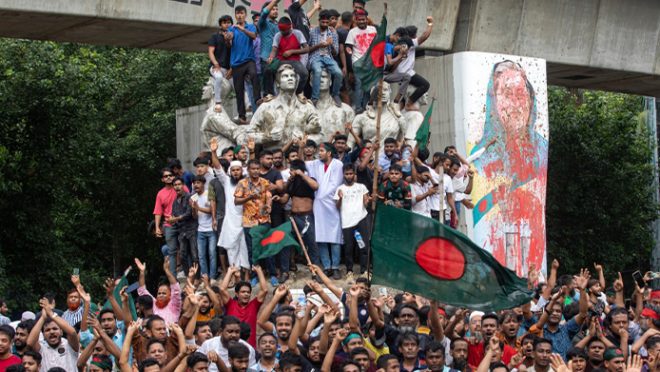A chronicle of 100 days: Education under the Interim Government
A chronicle of 100 days: Education under the Interim Government

On 5 August, the Hasina government was ousted from power by a mass uprising led by the students. Later on, an interim government, headed by Nobel Peace Prize Laureate Dr Muhammad Yunus, was sworn in on 8 August. The interim government took office on 16 August.
There were originally 16 appointed advisers, and seven more came later, for a total of 23. One thing to note is that two of these advisers, Asif Mahmud and Nahid Islam, are the leaders of “Students Against Discrimination,” which represents the inclusion of student voices into the administration.
The interim government’s first 100 days have been remarkably eventful and were met with both successes and setbacks. Throughout this period, the government has repeatedly expressed its commitment to meaningful reforms—including, and especially—in education.
Here are the highlights of the major events that took place in the country’s educational landscape.
20 August
Students protested at the Secretariat; HSC examination was cancelled.
7 September
Former Rajshahi University (RU) Chhatra League leader Abdullah Al Masud was beaten to death.
9 September
Students in the Vocational sector, protesting against discrimination, enforced a 6-hour blockade at Satrasta in the capital, causing severe traffic congestion.
10 September
A clash between Dhaka College and Ideal College students in the Science Laboratory area left 18 injured. In the aftermath, Dhaka College students took down the signboard of Ideal College.
11 September
An illustration of Abu Sayeed appeared in the Annual Macro Assessment Guide on the National Curriculum and Textbook Board (NCTB) website.
19 September
A group of students at Fazlul Haque Muslim Hall, University of Dhaka, beat a youth to death on suspicion of theft. On the same day, a former Chhatra League leader was beaten to death in Jahangirnagar.
Additionally, a decision was made to end political activities by both students and teachers at the University of Dhaka.
20 September
A video surfaced showing students making the newly appointed Pro-Vice-Chancellor Dr Md Sajedul Karim and Treasurer Dr Md Ismail Hossain of Shahjalal University of Science and Technology (SUST) take oath.
JU students issued 48-hour ultimatum to ban politics on campus.
22 September
Classes resumed at the University of Dhaka after a hiatus of 112 days.
20 October
Student protests led to the resignation announcement of the chairman of the Dhaka Education Board.
23 October
Students stormed the Secretariat, demanding unbiased HSC exam results. The police intervened, detaining 53 protesters.
24 October
A committee was formed to address the issues of the DU-affiliated seven colleges.
29 October
Students of the capital’s seven colleges blocked roads for five hours in protest.
30 October
Students of Dhaka University-affiliated colleges blocked the Science Laboratory intersection, demanding independent university status.
31 October
Separate arrangements were established within Dhaka University for its seven affiliated colleges.
12 November
Students of Jagannath University (JnU) protested by surrounding the Secretariat after the Education Secretary refused to meet with them about the transfer of the second campus project to the army.
15 November
Rajshahi University (RU) students staged hunger strike demanding end to ‘Dependent Quota.’
16 November
Experts in employment and education proposed mandatory vocational courses for all colleges under National University (NU) to reduce unemployment.


